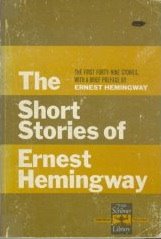 One can imagine Barth at a bar, late one night, chatting lucidly over a beer the relevance of any number of philosophical subjects and then later, accepting a dare. Create a character that has no character. One can imagine it simply because he did.
One can imagine Barth at a bar, late one night, chatting lucidly over a beer the relevance of any number of philosophical subjects and then later, accepting a dare. Create a character that has no character. One can imagine it simply because he did.Jacob Horner is a man whose mood changes like the weather, at a whim, several times a day. Yet he is intelligent beyond belief and is able to grab hold of any side of a debatable topic. Horner, though, is a man with many problems, not the least of which is immobility, that leads him to the care of a doctor who will not disclose his name. The doctore prescribes Horner the only logical thing that will cure his immobility and characterless character: he must become a professor of prescriptive grammar at Wicomoco State College.
There he meets Joe Morgan and his awkward but sometimes graceful wife Rennie Morgan. He begins to take riding lessons with Mrs. Morgan which leads to an eventual slip-up affair one evening that they both regret. Rennie tells Joe, and rather than be angry, he wants to "wrap his hands around the thing," understand it fully, so he sends Rennie to commit the crime again. And eventually she gets pregnant - the father is up in the air. And so Barth touches upon a subject one can only imagine as taboo and controversial beyond belief in 1960: abortion. It is this subject, it's treatment, and the suspense and lively story thus created that save Barth's novel, and save it well.
Meanwhile, Horner has minor relations with a bitter woman named Peggy Rankin (he mentions that he's forced into these situations, otherwise he's asexual), and spars with Mr. Morgan over a variety of topics where Horner's mood and opinion shift from one hodge-podge to the next. Most of the time he says he has no opinion simply because he has too many opinions. Mostly, it is Horner's openness to the possiblity of everything that leads him to become such a chameleon, the most passive central character in fiction I've come across. This is accentuated with the stolid stance of a statue of Laccoon Horner stares at in times of change. The statue never changes, but, depending on the day and Horner's mood at the moment, Laccoon will bear a smile, or be concerned, or be sad. One never knows.
Barth flourishes with humor, and indeed every page is filled with subtle laughs and in-between-the-line jokes, but this book, the self-proclaimed sibling to "The Floating Opera" can't help but fall in the shadow of it's older, wiser, all-around better sister. It's a good read, and it progresses as the story reaches it's climax, but it's nowhere near as insightful nor daring as its counterpart. "The End of the Road" may be just that, but it reads like an exercise at times rather than a well written novel. I'd still recommend the journey, with the preface that the road is at times laborious, but the end of the road should make it worth the ride.
It's cover - hmmm, well, the same as "The Floating Opera." My edition shares these two titles, but I like the separate covers more. They're both interesting enough - I say read them!


No comments:
Post a Comment